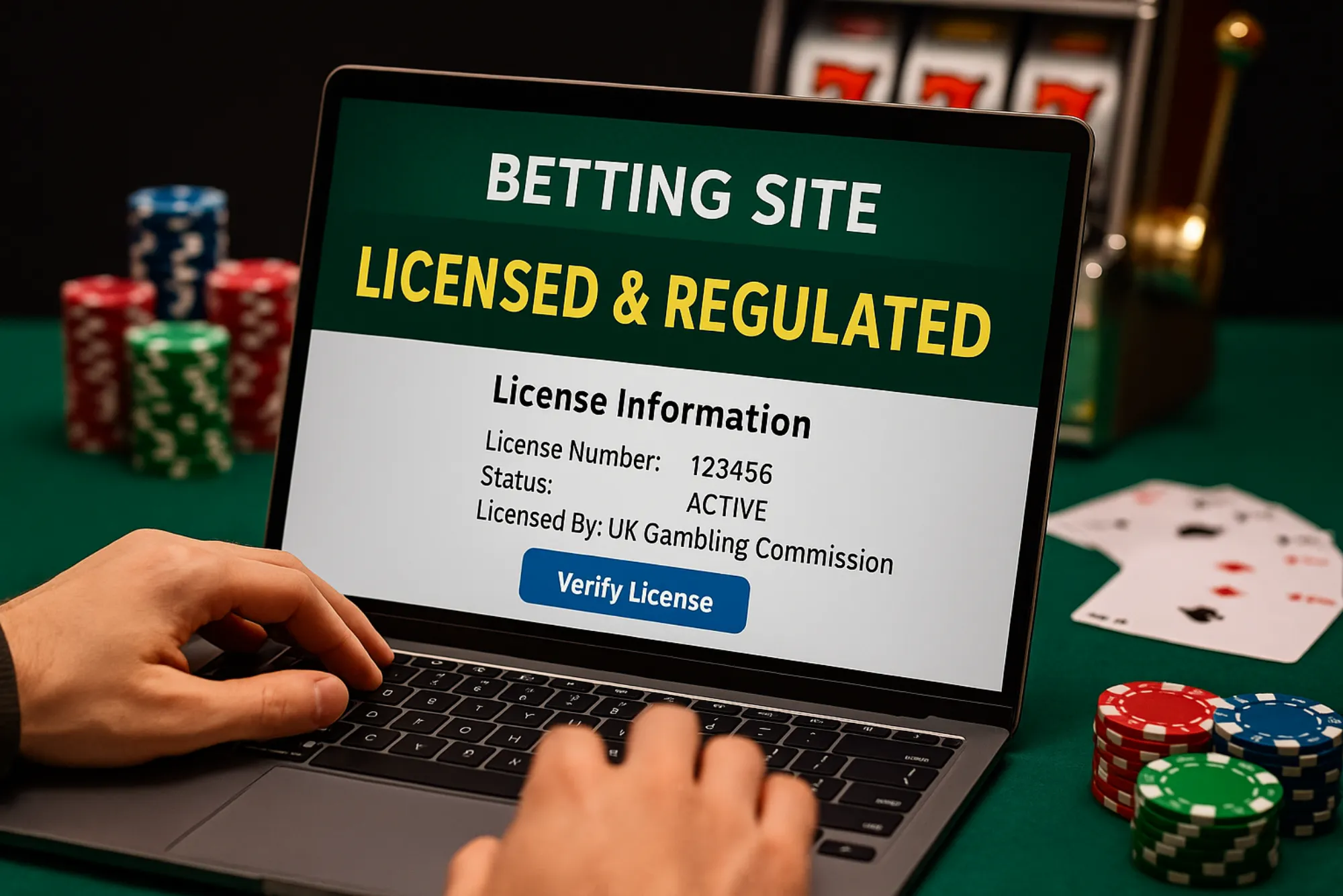Verifying the licensing status of an online betting site is one of the most important steps you can take before staking real money. A valid licence not only indicates that the operator meets regulatory standards for fairness and security but also ensures you have recourse in case of disputes. I still recall discovering, after a late-night punt, that the bookmaker I’d trusted did not appear on any official register—luckily, I’d only funded a small stake. Since then, I’ve made license checks an indispensable part of my betting routine. Below, I’ll guide you through every step of the verification process, share practical insights from my own experience, and highlight red flags to watch out for.
Why Licensing Matters in the UK
The UK Gambling Commission (UKGC) oversees all legal remote betting and gaming operators in Britain. Its mission is to keep crime out of gambling, protect children and vulnerable adults, and ensure that betting is conducted fairly and openly. Any online betting site operating lawfully in the UK must hold a valid UKGC licence. This licence guarantees that the operator’s systems have been audited, financial reserves are sufficient to cover player balances, and responsible gaming measures—such as deposit limits and self-exclusion—are in place. Without a licence, you risk dealing with fly-by-night operators that could withhold winnings or compromise your personal data.
Understanding the UK Gambling Commission Licence
When you visit a bookmaker’s website, look for the UKGC licence badge—typically displayed in the footer. A licensed operator lists its licence number alongside its official address. But rather than relying on claims alone, you should verify the details directly with the Commission. The UKGC maintains a publicly accessible register where you can search by licence number or company name. If you find a match, the register confirms the licence’s status (active, suspended, or revoked), the licence start date, and any conditions imposed on the operator. For anyone exploring new betting sites 2025, it’s especially important to check early entrants’ credentials; some may market innovative features but lack firm regulatory backing.
Checking the Licence on the UKGC Register
To verify a licence, head to the UKGC website and navigate to the “Register of Licensed Operators.” Enter the licence number exactly as shown on the bookmaker’s site—or search by company name if no number is obvious. The register entry provides crucial details, including any additional operating permissions (for example, in-play betting or slot games). I once uncovered that a site I was considering had a licence limited to bingo and scratch cards but not sports betting—avoid surprises by reviewing the full scope. Pay careful attention to the licence expiry date and any recorded warnings or suspensions; a clean, active licence is your first green light.
Cross-Checking Company Information
Even a licence on the UKGC register isn’t a full guarantee unless the company details match. After finding the licence entry, verify that the registered address, company number, and trading name align with what the site displays. Discrepancies—such as differing corporate addresses or missing company numbers—can indicate that the site is misrepresenting its status. I once spotted a minor mismatch in an address line that prompted further inquiry; customer support confirmed a recent corporate restructuring, and they provided updated documentation within hours. When in doubt, contact the UKGC directly or ask the bookmaker for proof of licence documentation.
Investigating Additional Credentials
Beyond the UKGC licence, leading UK betting sites often hold ISO certifications for data security or seals from independent testing agencies like eCOGRA. While these are not mandatory, they reinforce the operator’s commitment to player protection and auditing standards. On one occasion, I compared two similarly licensed operators and chose the one with ISO 27001 certification, giving me extra confidence in their data handling practices.
Recognising Red Flags of Unlicensed Operators
Some unscrupulous operators target UK punters without a legitimate licence. Common red flags include websites that lack any regulatory logos or display badges from unrecognised agencies. If the licence number on a site does not return a result in the UKGC register, that’s a major warning sign. Likewise, sites using generic terms like “We are licensed in Europe” without specifics should be avoided. I encountered a slick mobile app that claimed “EU licensed” but offered no verifiable details—once I dug deeper, I steered clear and found a genuinely licensed alternative with better odds.
Verifying Payment and Security Measures
A valid licence ensures that operators follow strict rules on segregation of customer funds and fair-play algorithms—but it’s wise to inspect payment methods and encryption at the same time. Licensed UK bookmakers support reputable providers (Visa, PayPal, Neteller) and use SSL/TLS encryption on all pages. When I tested a new platform, I noticed their payment page lacked the padlock icon; further investigation revealed they held a licence, but their encryption certificate had lapsed. I paused depositing until their security measures were fully restored.
Staying Informed on New Betting Sites 2025
The UK market evolves rapidly, with new betting sites 2025 launching innovative products—such as gamified promotions and blockchain-based transactions. However, newness doesn’t guarantee compliance. Before trying any fresh entrant, repeat the licence verification steps above. It also pays to read early player reviews and industry reports for early feedback on operational standards. When I trialled two startups this year, one had impeccable UKGC credentials but slow customer service, while the other struggled to prove its licence status and was quickly delisted. Staying vigilant helps you enjoy the best of innovation without compromising safety.
What to Do If You Suspect Fraud
If you believe an operator is misrepresenting its licence or you’ve been unfairly treated, your first step is to contact the UKGC. They investigate complaints related to unlicensed activity or breaches of licence conditions. Additionally, you can report issues through your chosen bookmaker’s dispute resolution process—most licensed sites are members of an Alternative Dispute Resolution (ADR) scheme. I once had a bet settlement issue that was resolved within weeks through ADR, funded by the bookmaker’s compliance team. Knowing your rights and escalation channels empowers you to hold operators to their regulatory promises.
Integrating Licence Checks into Your Betting Routine
Verifying a licence should be as routine as checking odds or reviewing promotions. Before creating an account, inspect the licence badge, search the UKGC register, cross-check company details, and review security certifications. Document your findings so you can quickly compare multiple sites. Over time, this process becomes second nature and drastically reduces the risk of landing on a rogue platform. Personally, I’ve saved hundreds of pounds by avoiding sites that failed these checks—funds that might otherwise have vanished without recourse.
Conclusion
Ensuring that an online betting site holds a valid UK Gambling Commission licence is the cornerstone of safe, responsible wagering. Armed with the right knowledge and a systematic approach, you can distinguish reputable operators from risky newcomers, including those among the new betting sites 2025. From searching the official register to verifying encryption and payment providers, each step contributes to a secure and enjoyable gaming experience. Take the time to check before you commit your funds—you’ll bet with confidence, knowing you have regulatory protection every step of the way.




